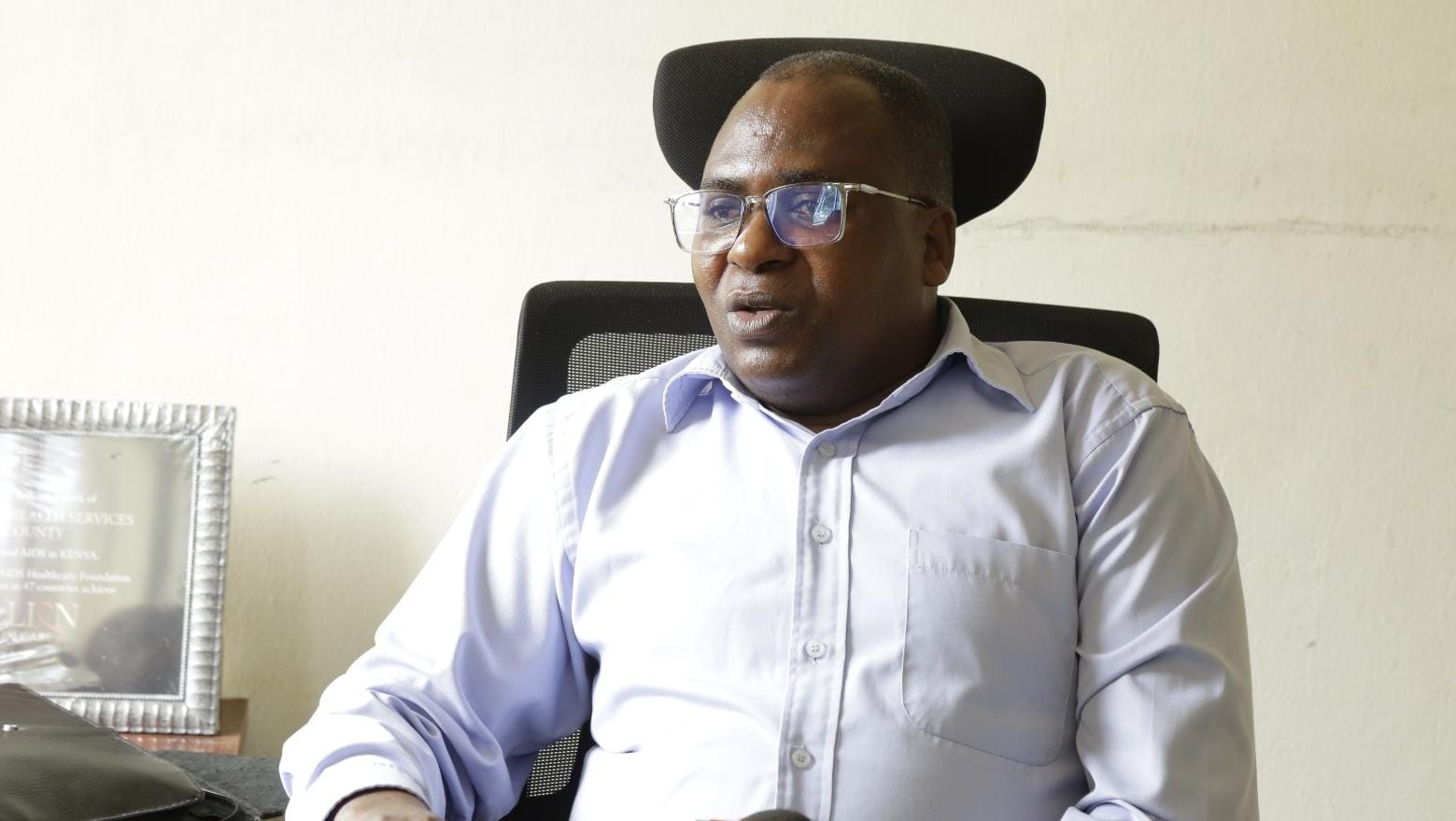
Male partner: The missing pillar in family planning
UNFPA has been supplying family service commodities through KEMSA.
“Some men have even asked, ‘How will my performance be?” says an operative nurse from Lunga Lunga, Kwale
In Summary

Audio By Vocalize


We meet Lunga Lunga Sub County Hospital, Kwale County operative nurse Allan Chibu who explains how vasectomy works.
“Before doing the surgery, we always give the patient time with the surgeons who perform the surgery to be explained to how the surgery is going to be done, the importance and the disadvantage of the same,” he says.
Chibu says before the patient is taken in for the surgery, he has to sign consent.
“You don't need to make an incision, the organ is being identified and pulled up by a specific instrument that is found in a vasectomy set. Then it is being ligated from both sides. Once you ligate both sides, you cut,” he says.
“So once you cut, you return it and you leave it like that. Then after that, the patient may need again to take some time to be observed for roughly an hour before being discharged to go home.”
He says it takes 10 to 15 minutes but notes that surgeries at times are different.
“You may find some surgeons are telling you it is hard to tell how long the surgery may take, but should you have it without any problem, it should take roughly 10 to 15 minutes,” he said.
“After the surgery, you are kept in an observation room for about 1 hour,” he explains.
Chibu explains that vasectomy remains an unpopular choice for men, primarily because of deeply entrenched beliefs and misconceptions.
"Men believe that if you undergo the procedure, your wife may leave you," he remarks, highlighting a widespread fear rooted in societal expectations and cultural norms.
He further elaborates on the myths that fuel this hesitation. "Or rather, men tend to believe that if you have gone through the procedure, you won't function well," he says, pointing to concerns about sexual performance.
"For vasectomy, a lot of social and cultural factors surround this particular method. Some men have even asked, ‘How will my performance be? Will it be affected by the fact that I’ve had a vasectomy?’"
Mary Mwakugu, reproductive health nurse at Kilifi County Referral Hospital echoes these sentiments, shedding light on the emotional barriers many men face.
"There’s that aspect—the fear, the fear of the unknown," she explained. "How will life be after this is done? Is there something that will be taken away from me? Is there something I will lose?"
She goes on to describe how some men fear losing their sense of masculinity or their sexual identity.
"They feel that if a vasectomy is done, they’ll lose part of who they are," Mwakugu says, emphasising the psychological weight of such misconceptions.
These fears, though largely unfounded, reveal the complex interplay of cultural attitudes, misinformation, and personal anxiety that contribute to the low uptake of vasectomy as a contraceptive option.

Dr Francis Gwama, CEC for health services, Kwale County during an interview at his office on December 9, 2024/ Photo by Loreen Wamalwa
The CEC for health services in Kwale County Dr Francis Gwama in an interview in his office explains that the facility has in the last two years done vasectomy for two men.
“They are doing very well even now,” he explains adding that men need to take an active role as far as family planning matters are concerned.
"It is important to note that family planning is not meant for women, it is something that we men need to embrace, for methods like vasectomy, it doesn't mean that when a man is done for vasectomy, he will not erect, no, he will, it is only that now he will not be able to impregnate," Dr Gwama said.
"Its uptake is low, because about two cases as compared to Bilateral Tubal Litigation (BTL) which is about 10, the biggest problem with men is the issue of being the head of the family."
"It's like in an African set up where it is believed women are there to give birth to children for the man, that thinking needs to be erased from the minds of men," he said.
"For men, start healthy, it is healthy for a man to be part and parcel of family planning as you will have a healthy family, " says the CEC.
Dr Gwama says his department has been working closely with institutions such as the Ministry of Health, UNFPA-Kenya and KEMSA in improving family planning services and ensuring they are accessible to more people.

Richard Kilundo is a practising nurse at Lunga Lunga Subcounty Hospital in Kwale County. He is among the few men who have taken the bull by its horns and undergone vasectomy.
Kilundo says that he opted to undergo vasectomy as his wife’s body was being affected negatively by the family methods she was using.
“She has blood pressure complications, the pills were affecting her as
they were making her blood pressure to shoot up, it was not right for her to
continue using the pills as they were affecting her more,” he says.
“The only way for us to stop having more children, I told her that to stop having all these problems, why don't I be the one to step in?” he adds.
Her explains that his sexual driver and performance has not been in any way affected by vasectomy.
“It does not reduce the masculine strength at all you'll be comfortable knowing there's no pregnancy that may come about,” he explains.
“It's like people see that having many children is having wealth, there's no wealth there, those children will need to feed, to havea good education, good upbringing, for them to be independent people...if not, they'll be a burden to you all your life,” Kilundo says.
“That's where the challenge is, people think having many children is having a prestigious name, this thought that each child comes with their fate, is a very misleading thought.”
Misconceptions surrounding vasectomy and its low uptake highlight a significant gap in reproductive health education.
Many men feel pressure to conform to traditional notions of masculinity, which often equate fertility and virility.
While women have many methods for preventing pregnancy, the options for men are limited to withdrawal, condoms or getting a vasectomy.
Some men think it is castration, while others think it is a painful and libido-killing procedure.

UNFPA has been supplying family service commodities through KEMSA.

Means and methods that allow individuals to decide if and when to have children